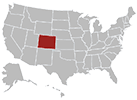
Do you have the ability to work in a fast-paced environment, pay attention to detail, and follow directions completely?
If the answer is yes, and you are also interested in being part of a medical team, you may be the perfect fit for a position as a Sterile Processing Technician.
This important part of the medical environment has very little patient contact, but they have the essential role of making sure the environment and all the tools, machines, and other equipment are completely sterile.
This may include using an autoclave, which is a machine that uses steam under pressure to sterilize.
If this sounds like something you might like to explore further as a career in Colorado, read on.
Steps to Become a Sterile Processing Technician in Colorado
To become a sterile processing technician in Colorado, you first need to get a high school diploma or GED and then complete a training program specifically for sterile processing technicians.
You then need to find a position and apply to take the test given by the Healthcare Sterile Processing Association (HSPA).
Once you pass the test, you will have a provisional license.
After 400 hours of documented work in the field, you then receive your full license.
Licensing Requirements for Sterile Processing Technicians in Colorado
Colorado does not require sterile processing technicians to be licensed. Once you complete an appropriate training program, you may find a position.
While licensing isn’t required, being certified will enable you to compete for higher-paying positions.
Some prominent employers may require candidates who are licensed.
Sterile Processing Technician Programs in Colorado
![]()
Western Colorado University
This 12-month course covers 190 hours of class time.
Instruction is 100 percent online, which is perfect for those who have to work while taking the course.
Upon completion, you are prepared to take the CRCST test given by the HSPA.
The total cost of the program is $2995 and includes a voucher to take the CRCST test.
Classes you will cover throughout your course are:
- Medical Terminology
- Introduction to Medical Terminology
- The Musculoskeletal System
- The Cardiovascular System
- The Lymphatic and Immune Systems
- The Respiratory System
- The Digestive System
- The Urinary System
- The Nervous System
- The Special Senses The Eyes and Ears
- The Integumentary System
- The Endocrine System
- The Reproductive System
- Diagnostic Procedures, Nuclear Medicine, Pharmacology
- Sterile Processing Technician
- Introduction
- Infection Control, Standards, and Regulations
- Decontamination and Workplace Safety
- Disinfection Process and Complex Instrumentation
- Tray Assembly
- Prep and Pack
- Introduction to Sterilization
- Introduction to Low-Temperature Sterilization
- Instrumentation Identification (Part 1)
- Instrumentation Identification (Part 2)
- Case Cart Introduction
- Sterile Storage
- Managing Inventory
- Ancillary Department Support
- Important Components for a Successful Career
- Wrapping Up and Preparing for Your Exam

Aims Community College
Aims Community College offers a sterile processing technician course that takes one semester to finish.
The first five weeks are classroom and lab work.
The second ten weeks are spent working 40 hours weekly in a clinical setting.
Upon completion, students will be able to take their CRCST test and have the required hours necessary to fulfill the requirement for full licensing.
During the program, students learn the rules and regulations for medical protocols, medical terminology, anatomy and microbiology, surgical instruments, infection prevention, decontamination, cleaning, and sterilization methods, and professional communication.
The program costs in-district students $2362.
In-state students from other districts pay $3960, and out-of-state students pay 10,845.

Pima Medical Institute
The 9-month sterile processing technician program at Pima Medical Institute includes an externship to help you get your career started.
This accredited program fulfills the requirements to prepare you for your initial CRCST test.
The subjects you will cover during this course include math fundamentals, CPR and first aid, computer basics, surgical instrument identification, microbiology, medical equipment, surgical terminology, storage and distribution, and sterilization and decontamination procedures.

Community College of Denver
The sterile processing technician course at the Community College of Denver.
The course is 16 credit hours long so it takes only one semester to complete.
The course is divided into three parts: Sterile Instrument Processing, Internship, and a Sterile Processing Seminar.
At the conclusion, students will be ready to sit for the CRCST given by HSPA.
For Colorado residents, the total cost of this certificate program is $2706.
Students from other states pay a total cost of $11,106.

Front Range Community College
Front Range Community College offers sterile processing technician students two pathways to their certificate.
The first pathway is to get hired by one of their partners in a training position.
The student works the paying position during the week and takes online and weekend classes for the academic portion of the work.
The second pathway is the traditional learning one where students complete their 18 hours during the week.
This pathway includes 11 weeks of a full-time, unpaid internship.
This is one semester in length.
Both pathways prepare students to take the CRCST exam.
The cost for Colorado residents is $5130 and those from other states pay $12,492.
There is an active military discount available.
Classes included in this certificate program include:
- Sterilization
- Decontamination
- Storage and Inventory Management
- Infection Control
- Surgical Instrumentation Procession
- Documentation and record maintenance
![]()
Otero College
The sterile processing technician certificate course at Otero is 100 percent online.
Once you have completed it, you will be prepared to take the CRCST exam.
This course is intended to take 12 months, but students may work at their own pace.
The cost of the program for Colorado residents is $5073.
Non-Colorado residents pay $8460.
The tuition cost for all students includes a voucher to take your CRCST test.
The subjects covered are:
- Medical Terminology
- The Musculoskeletal System
- The Cardiovascular System
- The Lymphatic and Immune Systems
- The Respiratory System
- The Digestive System
- The Urinary System
- The Nervous System
- The Special Senses
- The Eyes and Ears
- The Integumentary System
- The Endocrine System
- The Reproductive System
- Diagnostic Procedures, Nuclear Medicine, Pharmacology
- Infection Control, Standards, and Regulations
- Decontamination and Workplace Safety
- Disinfection Process and Complex Instrumentation
- Introduction to Low-Temperature Sterilization
- Instrumentation Identification (Part I)
- Instrumentation Identification (Part II)
- Case Cart Introduction
- Sterile Storage
- Managing Inventory
- Ancillary Department Support
6 Sterile Processing Technician Schools in Colorado
| School Name | Address |
|---|---|
| Western Colorado University | 1 Western Way, Gunnison, CO 81231, United States |
| Aims Community College | 5401 W 20th St, Greeley, CO 80634, United States |
| Pima Medical Institute | 7475 Dakin St #100, Denver, CO 80221, United States |
| Community College Of Denver | 800 Curtis Street, Denver, CO 80204, United States |
| Front Range Community College | 3645 W 112th Ave, Westminster, CO 80031, United States |
| Otero College | 1802 Colorado Ave, La Junta, CO 81050, United States |
Salary of Sterile Processing Technicians in Colorado
The lowest end of the salary spectrum in Colorado sees sterile processing technicians making $32,263 annually and the highest-paid workers in this career earn an annual salary of $50, 254.
The mean salary in Colorado is $40,433.
This is slightly above the national average for sterile processing technicians.
Annual Salary Range:Average Salary of Sterile Processing Technicians in Colorado
| City Name | Salary |
|---|---|
| Aspen | $41,067 |
| Boulder | $41,583 |
| Burlington | $39,006 |
| Arvada | $40,354 |
| Denver | $40,354 |
| Florence | $38,451 |
| Lafayette | $41,543 |
| Orchard | $38,689 |
| Platteville | $39,997 |
| Sterling | $37,658 |
Regional Salary
| Region | Employed | Avg. Annual Salary | Avg. Hourly Pay | Top 10% Annual Salary | Bottom 10% Annual Salary |
|---|---|---|---|---|---|
| Boulder, CO | 70 | $50,870 | $24.46 | $64,350 | $38,980 |
| Colorado Springs, CO | 150 | $50,550 | $24.3 | $59,260 | $33,130 |
| Denver-Aurora-Lakewood, CO | 600 | $51,050 | $24.54 | $64,950 | $40,460 |
| Fort Collins, CO | 80 | $59,840 | $28.77 | $116,790 | $39,640 |
| Grand Junction, CO | 50 | $41,060 | $19.74 | $51,920 | $31,620 |
| Pueblo, CO | 50 | $47,120 | $22.65 | $63,890 | $34,910 |
* Employment conditions in your area may vary.
Frequently Asked Questions
Are sterile processing technicians paid well in Colorado?
Sterile processing technicians in Colorado make slightly higher salaries than the average worker in this position.
You can expect to earn anywhere between $32,263 and $50,254 a year.
Where do sterile processing technicians normally work in Colorado?
As is the case throughout the country, most sterile processing technician positions are in hospitals.
Some outpatient surgical centers employ sterile processing technicians but these positions are few.
How difficult is the test to become a certified sterile processing technician in Colorado?
The test to become a Certified Registered Central Service Technician (CRCST) is an online test that takes approximately three hours to complete.
It consists of 150 multiple-choice questions.
This page is also available in Spanish.





